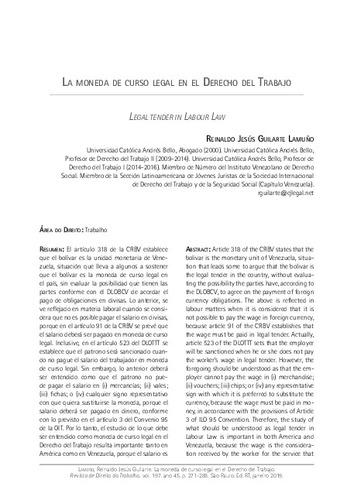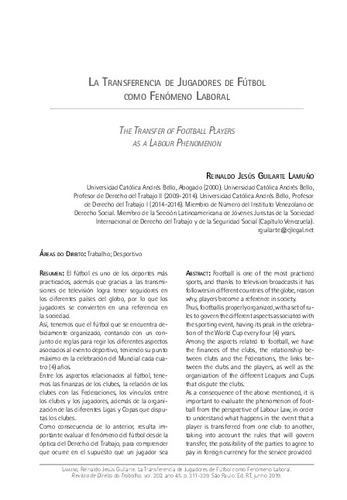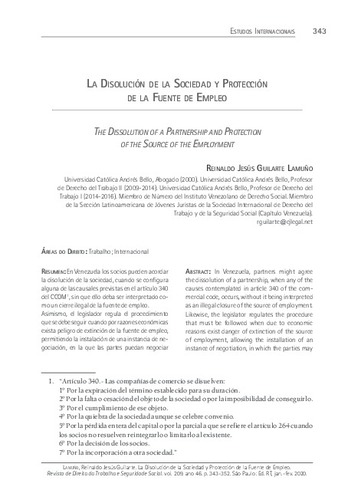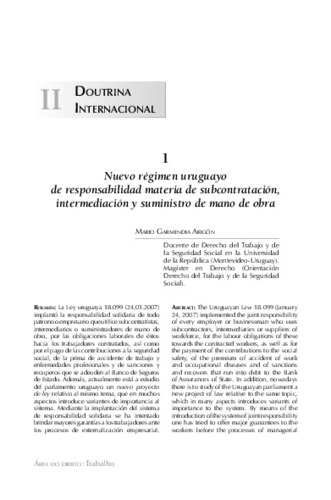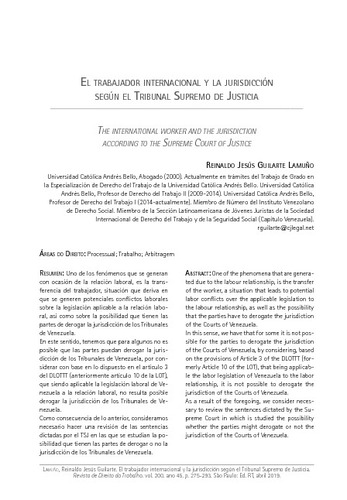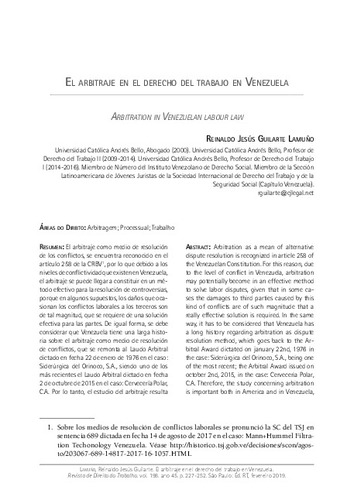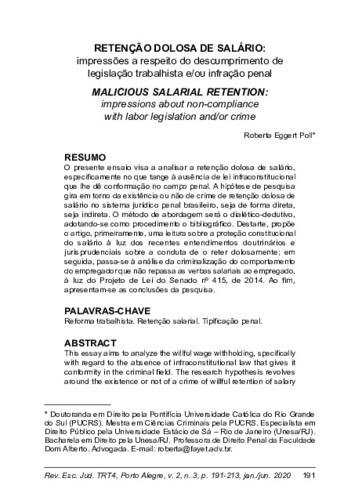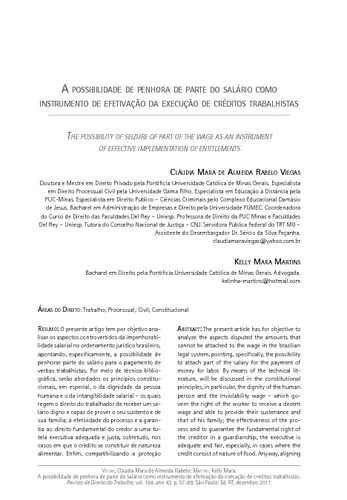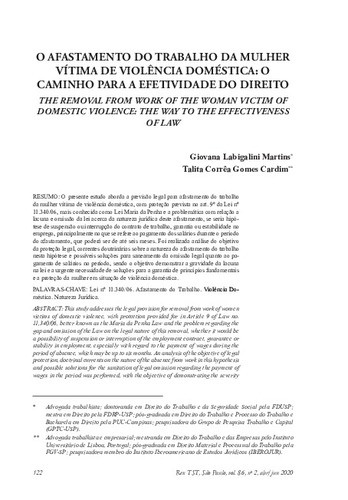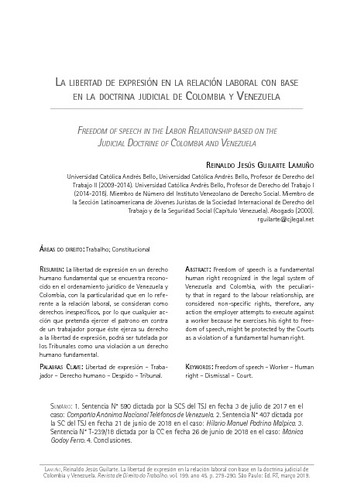Artigo de periódico
La moneda de curso legal en el derecho del trabajo
| dc.contributor.author | Guilarte Lamuño, Reinaldo Jesús | |
| dc.date.accessioned | 2019-09-02T19:36:47Z | |
| dc.date.available | 2019-09-02T19:36:47Z | |
| dc.date.issued | 2019-01 | |
| dc.identifier.citation | GUILARTE LAMUÑO, Reinaldo Jesús. La moneda de curso legal en el derecho del trabajo = Legal tender in labour law. Revista de direito do trabalho, São Paulo, v. 45, n. 197, p. 271-288, jan. 2019. | pt_BR |
| dc.identifier.uri | https://hdl.handle.net/20.500.12178/161337 | |
| dc.description.abstract | [spa] El artículo 318 de la CRBV establece que el bolívar es la unidad monetaria de Venezuela, situación que lleva a algunos a sostener que el bolívar es la moneda de curso legal en el país, sin evaluar la posibilidad que tienen las partes conforme con el DLOBCV de acordar el pago de obligaciones en divisas. Lo anterior, se ve reflejado en materia laboral cuando se considera que no es posible pagar el salario en divisas, porque en el artículo 91 de la CRBV se prevé que el salario deberá ser pagado en moneda de curso legal. Inclusive, en el artículo 523 del DLOTTT se establece que el patrono será sancionado cuando no pague el salario del trabajador en moneda de curso legal. Sin embargo, lo anterior deberá ser entendido como que el patrono no puede pagar el salario en (i) mercancías; (ii) vales; (iii) fichas; o (iv) cualquier signo representativo con que quiera sustituirse la moneda, porque el salario deberá ser pagado en dinero, conforme con lo previsto en el artículo 3 del Convenio 95 de la OIT. Por lo tanto, el estudio de lo que debe ser entendido como moneda de curso legal en el Derecho del Trabajo resulta importante tanto en América como en Venezuela, porque el salario es la contraprestación que recibe el trabajador por el servicio que presta para el patrono, siendo que éste se libera de su obligación pagando el salario en moneda de curso legal. | pt_BR |
| dc.description.abstract | [eng] Article 318 of the CRBV states that the bolivar is the monetary unit of Venezuela, situation that leads some to argue that the bolivar is the legal tender in the country, without evaluating the possibility the parties have, according to the DLOBCV, to agree on the payment of foreign currency obligations. The above is reflected in labour matters when it is considered that it is not possible to pay the wage in foreign currency, because article 91 of the CRBV establishes that the wage must be paid in legal tender. Actually, article 523 of the DLOTTT sets that the employer will be sanctioned when he or she does not pay the worker’s wage in legal tender. However, the foregoing should be understood as that the employer cannot pay the wage in (i) merchandise; (ii) vouchers; (iii) chips; or (iv) any representative sign with which it is preferred to substitute the currency, because the wage must be paid in money, in accordance with the provisions of Article 3 of ILO 95 Convention. Therefore, the study of what should be understood as legal tender in Labour Law is important in both America and Venezuela, because the wage is the consideration received by the worker for the service that provides to the employer, being that the latter is released from the obligation by paying the wage in legal tender. | pt_BR |
| dc.description.tableofcontents | Pago del salario en divisas -- Pago del salario en moneda comunal -- Pago en salario en criptomonedas | pt_BR |
| dc.language.iso | es | pt_BR |
| dc.relation.ispartof | Revista de direito do trabalho: vol. 45, n. 197 (jan. 2019) | pt_BR |
| dc.subject | Salário, Venezuela | pt_BR |
| dc.subject | Meios de pagamento, Venezuela | pt_BR |
| dc.subject | Moeda, Venezuela | pt_BR |
| dc.subject | Moeda estrangeira, Venezuela | pt_BR |
| dc.subject | Transferência eletrônica de fundos, Venezuela | pt_BR |
| dc.title | La moneda de curso legal en el derecho del trabajo | pt_BR |
| dc.title.alternative | Legal tender in labour law | pt_BR |
| dc.type.genre | Artigo de periódico | pt_BR |
| dc.identifier.rvbisys | 001141949 | |
| dc.relation.ispartoflink | https://hdl.handle.net/20.500.12178/161271 | pt_BR |
Coleção
-
Artigos9566


